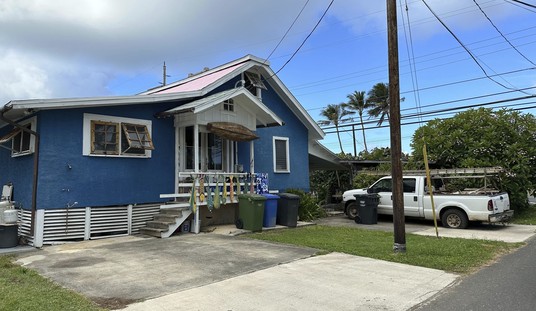One of the most frustrating aspects of the war between Israel and Hamas is the uncertainty regarding news reports about the conflict.
To put it simply, it is quite difficult to discern whether media outlets are doing their best to report the truth or merely pushing a political agenda. The recent killing of Al Jazeera reporters Anas al-Sharif and Mohamed Qreiqeh presents an instructive example of how the truth isn’t always easy to discern amid politically-motivated reporting.
As I wrote earlier, the Associated Press reported that the Israeli Defense Forces (IDF) targeted al-Sharif, who is believed to be a Hamas operative posing as a journalist. If this allegation is accurate, al-Sharif is not the first Al Jazeera journalist to work with Hamas and other terrorist groups.
In fact, Al Jazeera has a long and storied history of supporting terrorist groups — both overtly and covertly.
The news outlet began gaining prominence in the early 2000s for its coverage of Middle East geopolitics. The organization aired messages from al-Qaeda leader Osama bin Laden and other radical Islamic extremists.
Recommended
However, even back then, the outlet received criticism from those who saw that it had a very clear pro-Islamist and anti-Western bias. Qatar’s government, which has openly supported Hamas, the Taliban, and other extremist groups, is the primary source of funding for Al Jazeera. The network became so radical that countries like Egypt, Saudi Arabia, the United Arab Emirates, and other Arab nations have banned the outlet.
One of the organization’s Gaza correspondents praised Hamas militants in 2014 post on social media. He referred to terrorists who murdered Israeli civilians in Jerusalem as “martyrs.”
But this goes far beyond skewed news coverage and serving as a mouthpiece for radical Islamists.
In 2011, Sameer Allawi, who served as Al Jazeera’s Bureau Chief in Kabul, Afghanistan, was arrested by Israeli authorities in the West Bank. Israel suspected that Allawi was secretly a member of Hamas. He confessed to having been a member of the terrorist group since 1993 after weeks of interrogation.
Allawi admitted to carrying out multiple assignments for Hamas. Israeli authorities accused him of using journalism as a cover to “carry messages and funds for Hamas.”
He was later released as part of a plea deal. After being freed, Allawi claimed that a Israeli officers coerced his confession and that he was not tied to Hamas.
One Al Jazeera journalist was found to have provided aid to al-Qaeda operatives. Tayseer Allouni, a Syrian-born journalist, conducted an interview with Osama bin Laden in 2001. Several years later, he was arrested in Spain as part of an investigation into the terrorist group’s operations in Europe. A Spanish court convicted Allouni in 2005 and sentenced him to seven years in prison for his work with al-Qaeda.
The prosecution provided evidence showing that Allouni acted as a courier for money and messages for an al-Qaeda cell in Spain. He was also found ot have ties with the individuals who plotted the 9/11 attacks. Allouni continually denied being involved with al-Qaeda. But his conviction was upheld by an appeals court.
Another Al Jazeera journalist named Ahmad Zaidan leaked US intelligence documents as a member of al-Qaeda and the Muslim Brotherhood. US intelligence documents that Edward Snowden released showed that the NSA’s surveillance program had flagged Zaidan because of his close connections with top al-Qaeda leaders. However, Zaidan denied the allegations, and no charges were filed. Still, his activities shed more light on Al Jazeera’s connections to terrorist elements across the globe.
The news outlet has sustained criticism due to its positive coverage of Hezbollah and Palestinian Islamic Jihad — especially during military hostilities with Israel. The network has made it clear which side it is on. There are likely plenty of other Al Jazeera journalists who use their platforms to support and amplify radical Islamic extremists. But some go even further than that, providing actual assistance to nefarious actors in the Middle East and elsewhere.
This has created a situation in which it is difficult to determine which journalists are actual reporters and which are undercover terrorists. After all, journalism provides an excellent cover for members of Hamas and other terrorist entities. As long as this is the case, it will only further complicate a situation that is already complex enough.



